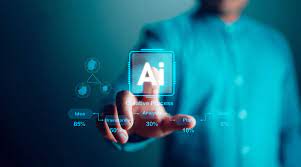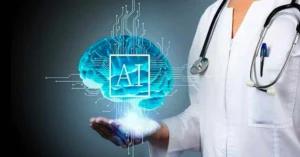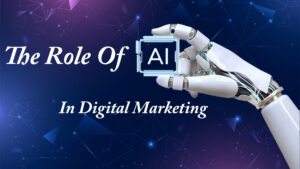Artificial intelligence is a rapidly developing technology that can transform society. In our daily lives, more and more artificial intelligence technologies are being integrated into healthcare, economics, transportation and entertainment. However, this progress raises serious ethical questions. This article explores the ethical challenges of artificial intelligence and how the harm can be limited.
Fairness and Partiality:
Biases in the field of artificial intelligence are a major ethical issue. When AI systems are trained with biased data, they can produce biased results. Prejudices can be racial, gendered or economic. Prejudice treats certain groups unfairly, perpetuating inequality and prejudice. Fairness in AI requires careful data selection and continuous monitoring and evaluation of AI systems to detect and correct biases.
Clarity and Explanation:
In AI ethics, transparency and explainability are crucial. Many artificial intelligence systems, especially deep learning systems, are “black boxes,” making their conclusions difficult to understand. This lack of transparency can be problematic because AI choices need to be understood in high-stakes areas such as healthcare, criminal justice, and finance. Researchers and developers are solving this problem by building more interpretable AI models and developing ways to explain AI judgments to humans.
Privacy, Surveillance:
Artificial intelligence can process large amounts of personal data, creating privacy concerns. Artificial intelligence in surveillance systems can lead to intrusive surveillance and privacy violations. Facial recognition technology raises concerns about non-consensual exploitation and data collection. Reducing threats to privacy requires strong data protection regulations, transparent data collection, and privacy-preserving artificial intelligence technologies.
Responsibilities and Obligations:
Ethics are complex when it comes to responsibilities in the field of artificial intelligence. It can be difficult to determine who is responsible for errors or damage in an AI system: the developer, the user, or the AI. Ambiguity makes it more difficult to achieve justice and hold all parties accountable. Addressing this issue will require clear accountability requirements, rigorous testing and validation of AI systems, and audits of AI decisions.
Independence and Control:
As AI systems become more autonomous, their control and supervision are ethical considerations. As AI systems become more autonomous, humans may lose control of them. In order to avoid unintended consequences and uphold ethics, AI systems require meaningful human monitoring. This requires building a visible, predictable and auditable artificial intelligence system and setting requirements for manual monitoring.
Employment Effect:
The ethical impact of artificial intelligence on employment is enormous. Artificial intelligence can create new jobs and increase productivity, but it can also replace workers, especially in low-skilled, repetitive jobs. An AI-powered economy could increase economic inequality and create new social problems. Addressing this problem requires investing in education and training programs to prepare workers for the AI era, promote job creation in new fields, and build social safety nets to support unemployment victims.
Ethics of Artificial Intelligence in War:
The military application of artificial intelligence will cause serious ethical problems. Autonomous weapon systems are a threat to both international security and human rights. The use of artificial intelligence in cyberwarfare and surveillance raises ethical considerations. The ethical use of artificial intelligence in conflict requires international cooperation, clear legal and ethical standards, and technology that focuses on human rights and security.
Ethics in the Development of Artificial Intelligence:
Politicians, researchers, developers and society must work together to produce ethical artificial intelligence. Policymakers should establish a comprehensive code of ethics for artificial intelligence. Researchers and developers must implement artificial intelligence systems in an ethical manner, including honesty, openness and responsibility. To understand the social impact of AI and ensure that AI technologies are ethical, ethicists, social scientists and the public must be involved.
Conclusion:
Understanding and addressing the ethical issues of artificial intelligence are critical to maximizing its benefits and minimizing its harms. Bias and fairness, transparency and explainability, privacy and oversight, accountability and autonomy, autonomy and control, employment impacts, and the ethical use of AI in warfare must be carefully considered and proactive. We can create ethical, transparent and useful AI technologies by working together with policymakers, researchers, developers and society. The development of ethical artificial intelligence will help humanity prosper and progress.
FAQs:
1. What are the key ethical issues in artificial intelligence?
The key ethical issues for artificial intelligence are bias and fairness, transparency and explainability, privacy and oversight, responsibility and accountability, autonomy and control, employment implications, and war ethics. These challenges must be addressed to create and use AI technologies responsibly.
2. How does bias affect artificial intelligence systems, and how can bias be reduced?
Biased data used to train AI systems can lead to unfair results. This can lead to group discrimination. Use diverse and representative data sets to monitor AI systems for biases and correct biases to reduce biases.
3. Why and how can artificial intelligence be transparent?
Users need transparency about AI to understand how AI makes judgments, especially in high-stakes areas such as healthcare and finance. Develop explainable AI models, clearly explain AI judgments, and monitor and evaluate AI systems for transparency.
4. How can we solve AI privacy problems?
Artificial intelligence can process large amounts of personal data, which can lead to intrusive surveillance and privacy issues. Establishing strong data protection standards, transparency in data collection, and guaranteed privacy-preserving artificial intelligence technology can solve these problems.
5. How can we manage the impact of artificial intelligence on employment?
Investing in education and training programs to equip workers with new skills, supporting job creation in developing regions and establishing social safety nets to support unemployment victims can mitigate the impact of AI on employment. Positive action is needed to make an AI-driven economy inclusive and equitable.



